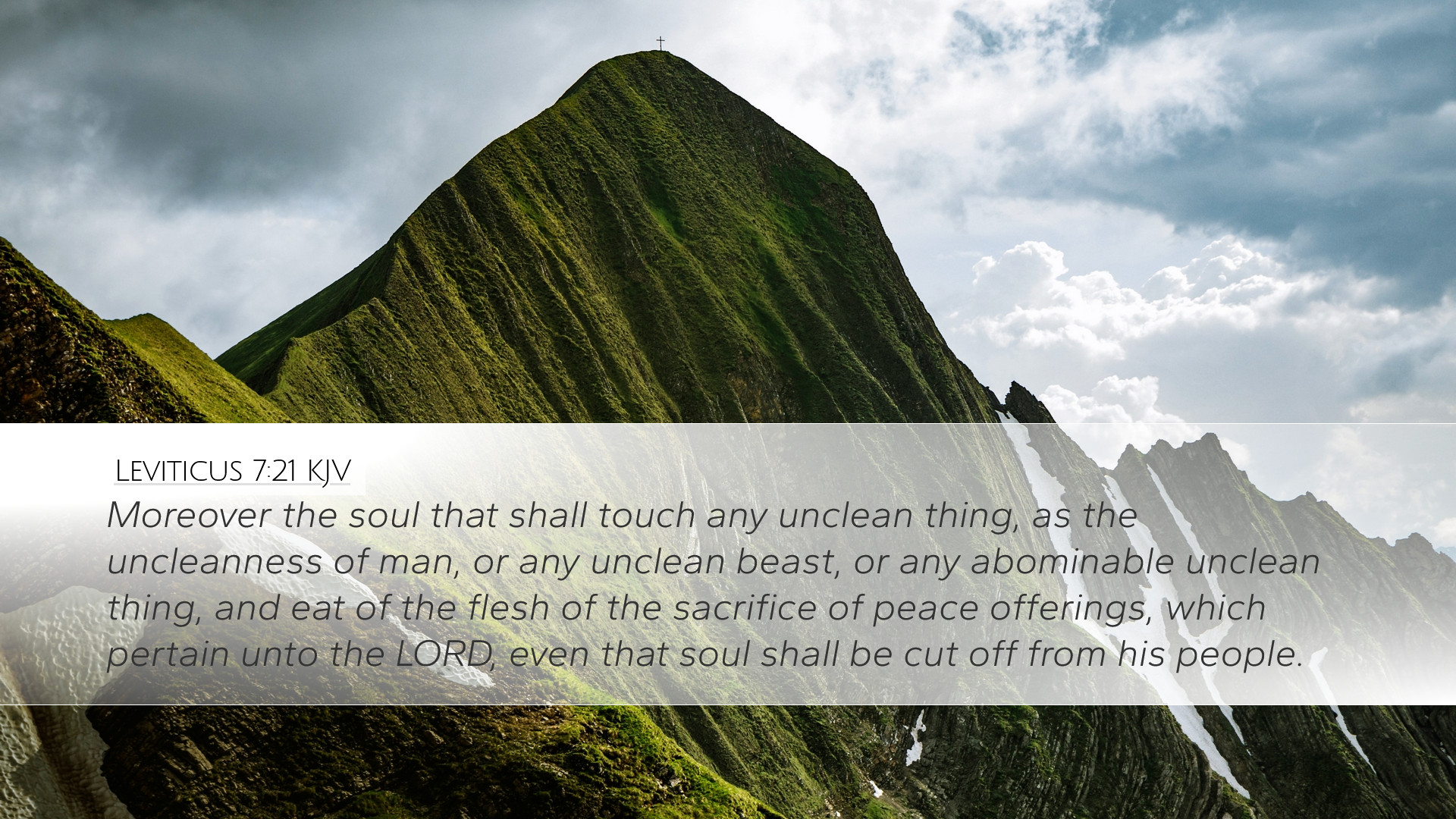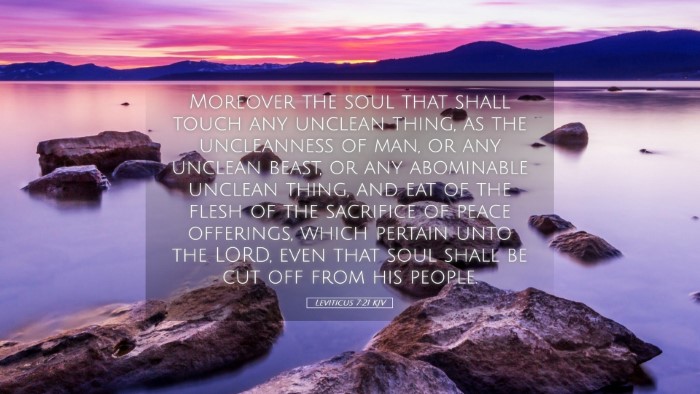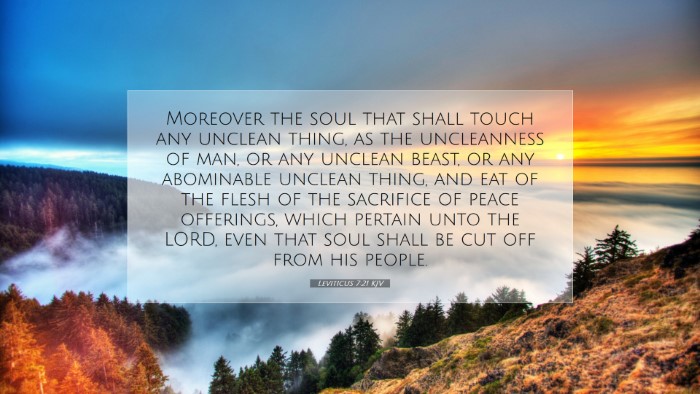Commentary on Leviticus 7:21
Leviticus 7:21 states: "Moreover, the soul that shall touch any unclean thing, as the uncleanness of man, or any unclean beast, or any abominable unclean thing, and eat of the flesh of the sacrifice of peace offerings, which pertain unto the LORD, even that soul shall be cut off from his people."
Understanding the Context
The book of Leviticus is essentially a manual of holiness, detailing the laws and ordinances governing Israelite worship and daily life. The sacrifices and offerings in the Levitical system served as a means for the Israelites to maintain their covenant relationship with God. Leviticus 7 discusses the peace offerings and addresses the importance of cleanliness and holiness in the sacrificial system.
Commentary Insights
Matthew Henry's Commentary
Matthew Henry highlights the significance of this verse in emphasizing the need for ritual purity. He notes that the unclean individual described in Leviticus 7:21 refers to anyone who has touched something ceremonially unclean, which could result from various sources such as disease, contact with corpses, or certain animals. The act of consuming sacrificial meat, intended for the LORD, while in an unclean state results in severe consequences, namely being "cut off" from the community.
Henry stresses the moral aspect of these laws, suggesting that they serve to teach the importance of spiritual purity. By associating with unclean things, one compromises their fellowship with God and the community. He suggests that this verse serves as a reminder for believers to maintain holiness in their conduct and worship.
Albert Barnes' Notes on the Bible
Albert Barnes provides a deeper analysis of the repercussions of touching anything unclean in relation to the offerings. He remarks that, according to the Mosaic Law, purity was not merely a physical matter but also held spiritual importance. Barnes emphasizes that the peace offerings represent fellowship with God, and thus, spiritual contamination could break that fellowship.
He also examines the phrase "cut off from his people," indicating a form of excommunication or separation from the Israelites. This was a significant penalty that reflected the seriousness of being unclean, especially when approaching sacred offerings. Barnes draws parallels with New Testament teachings, suggesting that while Christians are not bound by OT laws in the same manner, the underlying principle of maintaining purity in worship remains vital.
Adam Clarke's Commentary
In his exposition, Adam Clarke provides insight into the cultural and ritualistic practices surrounding cleanliness in Israelite worship. He explains that touching "any unclean thing" leads to a contamination that renders an individual unfit for participating in sacred acts, including the peace offerings. Clarke notes the grave implications of such actions, as they symbolize an affront to God’s holiness.
Clarke also delves into the theological significance of separation from the community. He posits that the cutting off from the people serves a dual purpose: it acts as a deterrent against disregard for God’s laws and affirms the importance of holiness in collective worship. His commentary highlights the necessity for believers to recognize the seriousness of their relationship with God and their responsibilities toward their community.
Theological Reflections
This verse calls for introspection about how believers maintain their purity and holiness today. It serves as a poignant reminder of the reverence that should be held in regard to approaching God, both in private devotion and corporate worship. Just as the Israelites were cautioned against careless participation in offerings while unclean, modern believers are encouraged to purge their lives of sin and distractions that hinder fellowship with God.
Practical Applications
- Awareness of Sin: Modern believers should cultivate an awareness of behavior that might lead to spiritual uncleanness. Personal holiness is of utmost importance.
- Community Responsibility: The call for purity extends to how we engage with our communities. Believers are encouraged to hold one another accountable and uphold the standards of holiness.
- Respect for Worship: Approaching God in worship is a serious matter. It entails preparation, both in spirit and practice.
- Symbolic Lesson: Just as peace offerings were meant for communion with God, believers today should seek genuine fellowship while being cautious of their spiritual state.
Conclusion
Leviticus 7:21 is a reminder of the immense value God places on holiness and purity within His people. Through insights from public domain commentaries such as those by Matthew Henry, Albert Barnes, and Adam Clarke, we see the theological, moral, and communal implications of this commandment. Modern believers are encouraged to reflect on their own spiritual cleanliness as they engage in worship and community life.


